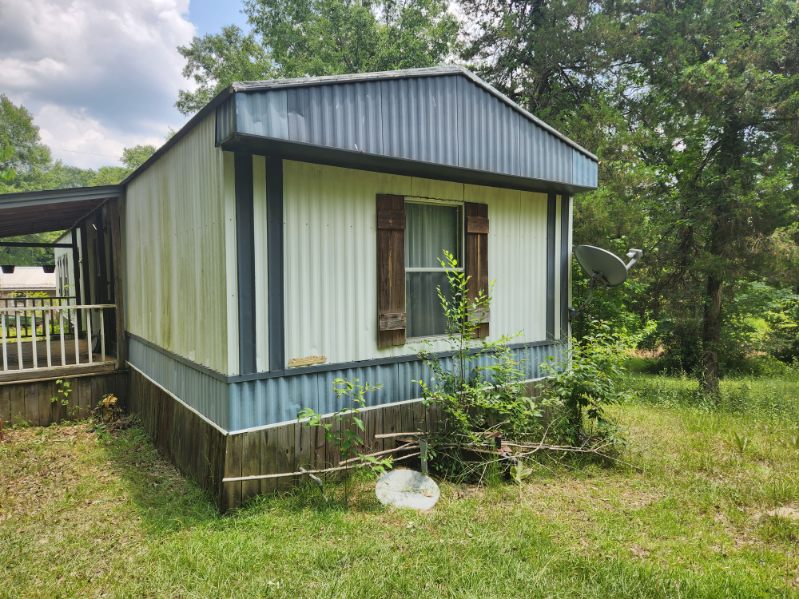Florida is the leading state based on the number of mobile homes and trailers in the U.S. The report on manufactured-home communities in Florida presents data representations of 212,857 homesites.
Eviction from a mobile home park in Florida, even for minor rent payment debts, remains a significant issue in the state. Although manufactured homes might be more affordable than purchasing a new house, mobile homeowners often face drawbacks.
In this post, we’ll cover the eviction process and the legal protocol in Florida in depth. This post will help you understand the best options for taking care of a mobile home.
The 5 Reasons to Get Evicted in Florida
Landlord and tenant laws don’t properly apply in a situation between a mobile homeowner and the park owner. These relations are regulated by a set of statutes under Florida Law. These laws are different from the ones regulating all other landlord-tenant relations.
Chapter 723 of Florida Statutes regulates evictions for mobile home parks and outlines the specific basis upon which a mobile home park owner may evict a mobile home park resident.
It cites that the mobile park owners have the right to evict under the following five circumstances:
- Failure to pay rent.
- Failure to obtain residency approval from the mobile home park.
- Violation of federal, state, or local law that threatens the health, safety, or welfare of other park residents.
- Violation of your rental agreement or the mobile home park rules and regulations.
- Re-purposing of the land use. The mobile home park owner can re-purpose the land use. For example: changing it from rental property to agricultural property.
All and any of these circumstances can result in an eviction from a mobile home park in Florida. And this eviction can have devastating effects on the mobile homeowners and the future of their homes.
Notices for Eviction from Mobile Home in Florida
The mobile home park owner must give the resident a written notice to move before they can evict the resident for any of the reasons listed in Chapter 723. You must tape the notice to the resident’s door and mail it to them by certified or registered mail with a return receipt requested.
The written notice to move must also include appropriate information, depending on what the reason for the eviction is. Below are the notice requirements for different reasons for eviction:
1. Unpaid rent:
The notice provides you with 5 days (excluding the day the notice was delivered) to either pay the lot rent or move. If you pay the lot rent within the 5-day period, you cannot be evicted.
One crucial thing to consider is that securing a mover for a home relocation within just 5 days can be incredibly tough. You’ll need to tackle multiple hurdles like arranging title work, permits, finding a new location, and preparing the home.
2. Violation of federal, state, or local law that threatens the health, safety, or welfare of other park residents:
The notice must give you 7 days to move.
3. The change in the use of the land:
The mobile home park owner must give you at least 6-month notice, if the use of the land is changing. The change has to be documented and the mobile home park owner has to declare in writing that the use of the land is changing.
4. Violation of the rental agreement or park rules and regulations:
The mobile home park owner must give you a written notice, which gives you 7 days to move, if your actions threaten the life, health, safety, or property of other residents or mobile home park employees.
The notice will describe in detail what you have done wrong and it gives you 7 days to make amends. If you do so within the 7 days, you cannot be evicted.
If you break the rule a second time within 12 months of the first violation, you’ll receive another notice detailing what you’ve done and you’ll be given 30 days to move. You don’t have the right to “fix” the problem, in case this happens.
How Does Eviction from Mobile Home Park in Florida Work?
The eviction process in Florida differs from the eviction protocols in other states. Mobile home park evictions in Florida follows a few distinct steps. These include:
1. Summons and Complaint
2. File and Answer with 5 days
3. Pay any rent due to the court
4. The court hearing
5. Eviction
1. Summons and Complaint:
The mobile park owner must present the resident with a copy of the eviction papers called the “summons” and “complaint” obtained from a deputy sheriff or process server. If after at least two tries, the deputy can’t reach the resident, they can tape the eviction papers to their door. This is called “service by posting”. In this case, the clerk’s office must also mail you a copy by regular mail.
2. File and Answer with 5 days:
The deadline for filing a response at the clerk’s office is 5 days. You must also mail a copy to the mobile park owner within 5 days, excluding weekends, legal holidays, or the day you were served. The response you give should include the legal reasons. These reasons are also known as “defenses” or why you should not be evicted.
3. Pay any rent due to the court:
The mobile park owner can argue that you owe rent and you have to pay the amount to the Clerk of Court, to get a hearing. If you disagree with the rent amount the mobile park homeowner is arguing, you must file a “motion to determine rent” within the 5-day period and ask the judge in writing to decide exactly how much rent should be paid to the clerk.
If you don’t file the motion (or pay rent that’s due), the judge can issue an eviction order without a hearing.
The judge can also deny the eviction on two conditions:
- You have not failed to pay rent more than 2 times during your lease.
- You are willing to pay the lot rent, late fees, court costs, and attorney fees.
4. The court hearing:
If you decide to pay the rent to the Clerk or file a “motion to determine rent”, the court will schedule your case for a hearing. The court will inform you in writing of the time and place of the hearing. This might be the only hearing you’ll have for the case.
5. Eviction:
The judge can rule the case in mobile home park owner’s favor and issue an order for possession of the lot. In this case, the clerk will go ahead and issue a writ of possession to the sheriff who will tape it to the door of your mobile home. The writ of possession is not issued until 10 days after the judgment for possession. The sheriff can forcibly remove your possessions, at that time,
When it comes to protecting mobile home park residents, Florida has what is considered a “model” regulation. The state aids residents with relocating and covering some of the cost of the move. The process can also be prolonged and confusing. Oftentimes, the private sector profits off the disposal, relocation, and reinstallation of these mobile homes.
Dealing with Mobile Home Evictions in Florida: Challenges and Legal Obligations
The risk of losing your home is devastating and sometimes, it comes with little warning.
Unlike house renters, a manufactured homeowner being evicted must either sell the mobile home or move it to another site. Subsequently, the issue is that mobile homes are not actually that mobile, even though their name suggests otherwise.
The National Consumer Law Center reports that the cost of moving a mobile home usually ranges from $5,000 to $10,000. Oftentimes, this means that if the owner cannot afford to move it, selling it or donating it are the only good options.
Many states, including Florida, exclude manufactured-home owners from the basic legal protections that cover tenants in rented houses or apartments. Mandatory notice periods for rent increases and evictions are just a couple of examples.
Mobile home park owners were the top 10 filers of evictions in Florida’s Alachua, Duval, and Pinellas counties.
In the event of an eviction, it is imperative for mobile home park owners and mobile homeowners to follow all the rules and procedures required by Florida law.
Conclusion
To learn more about the laws on mobile homes, Chapter 723 of the Florida Statues is a great source to start.
We also highly recommend mobile homeowners to consult a lawyer when at risk of getting evicted.
You must follow Florida laws and conditions throughout the process for the eviction to take place. Additionally, residents must receive a written notice before any further action takes place. If the park owner and resident are not able to come to a mutual agreement, it’s up to the court to make the final decision.
Moving your mobile home to a different site can be expensive and stressful. Therefore, if you need to leave the mobile home park due to eviction and can’t afford to move it elsewhere, it is best to donate it before the eviction is enforced.
Banyan Home Removal connects mobile homes to homeless people in need of shelter. Donating your mobile home can relieve the stress of moving it while also helping someone in need. You can contact us to book an appointment and we’ll move your mobile home off your land cost-free.


